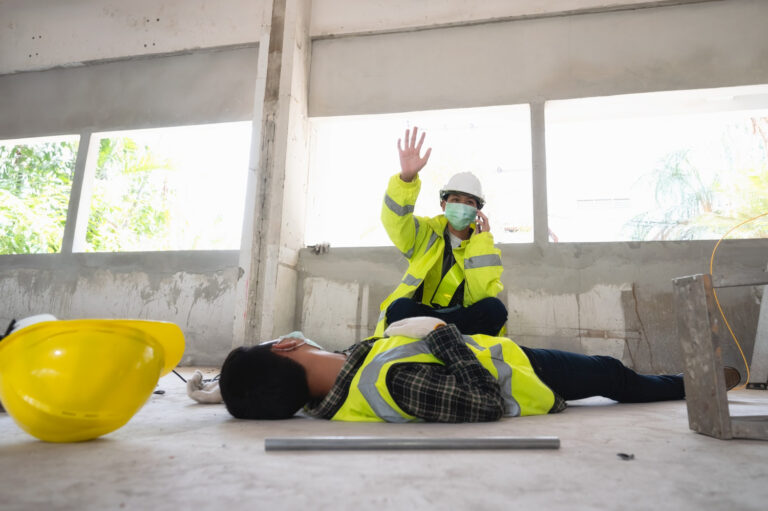Wrongful Death Malpractice: Definition and Examples
What is wrongful death malpractice, and why should you care? At LawOfficeOfBrianKelly, we understand the deep pain and confusion that comes with losing a loved one due to medical negligence.
This article will guide you through understanding wrongful death malpractice and your potential rights. With our experience as compassionate divorce lawyers, we dedicate ourselves to supporting and guiding families through their toughest times.
As demonstrated by the American Bar Association, wrongful death malpractice occurs when a medical professional’s negligence directly results in a patient’s death. This can involve errors in diagnosis, treatment, or surgical procedures. Families may seek legal action for compensation due to the loss.
What is Wrongful Death Malpractice?
Wrongful death malpractice arises when a healthcare provider’s negligence or wrongful act leads to a patient’s death.
Largely this can include mistakes in diagnosis, treatment, or surgery that result in a patient’s death. It means the healthcare provider did not follow the standard of care expected when treating a patient. Wrongful death malpractice can also happen if a healthcare provider does not get the patient’s permission before doing a risky procedure that leads to death.
In general in such cases, the healthcare provider might be responsible for paying damages, which can cover lost earnings, medical costs, and pain and suffering. If you think a loved one’s death was due to medical malpractice, it is important to get legal advice.
Causes of Wrongful Death Malpractice
Wrongful death malpractice often occurs due to medical errors, delayed diagnoses, or surgical mistakes.
At the simplest level, one common cause of wrongful death in healthcare is misdiagnosis or delayed diagnosis, leading to incorrect treatment or late care. Errors during surgery, like operating on the wrong body part or leaving items inside the body, can also cause wrongful death. Poor communication among doctors and nurses can result in wrong medication doses or missed symptoms.
In a basic sense, using poorly maintained equipment or neglecting proper cleanliness can also contribute. Sometimes, hospitals may be short-staffed or have undertrained workers, leading to poor care and preventable deaths. Not getting informed consent from patients or their families before treatment can also have deadly results.
Legal Steps for Wrongful Death Cases
Loved ones can seek compensation through a wrongful death lawsuit when a person dies due to another’s negligence or wrongful actions.
If you want to take legal action, the first thing to do is talk to a lawyer who knows about wrongful death cases. The lawyer will look at your situation and decide if you can file a wrongful death claim.
If the lawyer thinks you have a case, they will start a lawsuit for the deceased person’s estate and their family. This lawsuit aims to get money to cover things like medical bills, funeral costs, lost income, and emotional pain.
While going through the legal process, it’s important to collect evidence to back up your claim. To put it briefly, this includes witness statements, medical records, and other important documents. Sometimes, you might also need experts to testify for your case.
Often, the parties may try to settle the case out of court. If they can’t agree on a settlement, the case will go to court, and a judge or jury will decide what happens.
Remember, wrongful death laws are different in each state, so it’s important to work with a lawyer who knows the rules in your state. By following the right legal steps, the deceased person’s family can seek justice and hold those at fault accountable.
Who Can File a Wrongful Death Claim?
Immediate family members can file a wrongful death claim if their loved one has died due to someone else’s negligence or intentional actions.
Immediate family members usually include spouses, children, parents, and sometimes siblings. The person making the claim must show that their loved one’s death was directly caused by someone else’s actions or negligence. Sometimes, a representative of the deceased person’s estate can also file a wrongful death claim for the family.
Basically, each state has its own rules about who can file a wrongful death claim and the deadlines for doing so. The types of compensation that can be claimed might also differ based on the case details. Families who think they have a wrongful death claim should talk to an experienced lawyer to understand their legal rights and options.
Compensation in Wrongful Death Cases
In wrongful death cases, compensation can sometimes include punitive damages, which are awarded to punish particularly reckless behavior.
To be brief, this payment usually covers medical and funeral costs, plus the money the deceased would have earned and contributed in the future. It also takes into account the family’s emotional pain, loss of companionship, and how the death affects their overall quality of life.
Broadly speaking, the exact amount of compensation can vary depending on factors like the age, health, and earning potential of the deceased, and how responsible the other party was. It’s important for the surviving family to get legal help to make sure they receive fair compensation for their loss.

The Closing Remarks
Wrongful death malpractice occurs when a healthcare provider’s negligence or intentional harm leads to the death of a patient.
What LawOfficeOfBrianKelly is advocating for is, this type of malpractice can have devastating consequences for the victim’s loved ones, who may be able to seek justice and compensation through a wrongful death lawsuit. It is important for medical professionals to uphold a high standard of care to prevent such tragic incidents.







